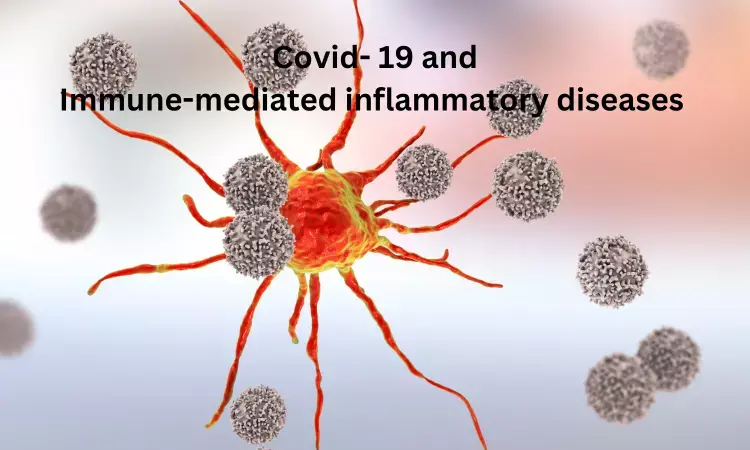- Home
- Medical news & Guidelines
- Anesthesiology
- Cardiology and CTVS
- Critical Care
- Dentistry
- Dermatology
- Diabetes and Endocrinology
- ENT
- Gastroenterology
- Medicine
- Nephrology
- Neurology
- Obstretics-Gynaecology
- Oncology
- Ophthalmology
- Orthopaedics
- Pediatrics-Neonatology
- Psychiatry
- Pulmonology
- Radiology
- Surgery
- Urology
- Laboratory Medicine
- Diet
- Nursing
- Paramedical
- Physiotherapy
- Health news
- Fact Check
- Bone Health Fact Check
- Brain Health Fact Check
- Cancer Related Fact Check
- Child Care Fact Check
- Dental and oral health fact check
- Diabetes and metabolic health fact check
- Diet and Nutrition Fact Check
- Eye and ENT Care Fact Check
- Fitness fact check
- Gut health fact check
- Heart health fact check
- Kidney health fact check
- Medical education fact check
- Men's health fact check
- Respiratory fact check
- Skin and hair care fact check
- Vaccine and Immunization fact check
- Women's health fact check
- AYUSH
- State News
- Andaman and Nicobar Islands
- Andhra Pradesh
- Arunachal Pradesh
- Assam
- Bihar
- Chandigarh
- Chattisgarh
- Dadra and Nagar Haveli
- Daman and Diu
- Delhi
- Goa
- Gujarat
- Haryana
- Himachal Pradesh
- Jammu & Kashmir
- Jharkhand
- Karnataka
- Kerala
- Ladakh
- Lakshadweep
- Madhya Pradesh
- Maharashtra
- Manipur
- Meghalaya
- Mizoram
- Nagaland
- Odisha
- Puducherry
- Punjab
- Rajasthan
- Sikkim
- Tamil Nadu
- Telangana
- Tripura
- Uttar Pradesh
- Uttrakhand
- West Bengal
- Medical Education
- Industry
No additional risk of VTE among COVID-19 patients with immune mediated inflammatory diseases

Immune-mediated inflammatory diseases (IMIDs) categorized as a heterogeneous group of chronic diseases that result from abnormal activation of the immune system, affecting 5% to 7% of people in the Western world. COVID-19 is reported to cause widespread inflammation; hyperactivation of this systemic immune response may ultimately cause multiorgan failure and death.
A recent cohort study conducted using health administrative data from Ontario, Canada, the incidence of venous thromboembolism (VTE) was low among individuals with IMIDs. The findings of the study are published in JAMA Network.
Researchers conducted a population-based matched cohort study using multiple deterministically linked health administrative databases. Individuals with IMIDs (n = 28 440) who tested positive for COVID-19 were matched with up to 5 individuals without an IMID (n = 126 437) who tested positive for COVID-19. Diagnosis of an IMID, identified using algorithms based on diagnostic codes, procedures, and specialist visits. The main outcome was estimated age- and sex-standardized incidence of VTE. Proportional cause-specific hazard models compared the risk of VTE in people with and without IMIDs. Death was a competing risk. Models adjusted for history of VTE, 2 or more doses of a COVID-19 vaccine 14 or more days prior to COVID-19 diagnosis, and the Charlson Comorbidity Index. Routinely collected health data were used, so the hypothesis tested was formulated after data collection but prior to being granted access to data.
The key findings of the study are
• The study included 28 440 individuals (16 741 [58.9%] female; 11 699 [41.1%] male) with an IMID diagnosed prior to first COVID-19 diagnosis, with a mean (SD) age of 52.1 (18.8) years at COVID-19 diagnosis.
• These individuals were matched to 126 437 controls without IMIDs. The incidence of VTE within 6 months of COVID-19 diagnosis among 28 440 individuals with an IMID was 2.64 (95% CI, 2.23-3.10) per 100 000 person-days compared with 2.18 (95% CI, 1.99-2.38) per 100 000 person-days among 126 437 matched individuals without IMIDs.
• The VTE risk was not statistically significantly different among those with vs without IMIDs (adjusted hazard ratio, 1.12; 95% CI, 0.95-1.32).
Researchers concluded that “In this retrospective population-based cohort study of individuals with IMIDs following COVID-19, individuals with IMIDs did not have a higher risk of VTE compared with individuals without an IMID. These data provide reassurance to clinicians caring for individuals with IMIDs and COVID-19.”
Reference: Khan R, Kuenzig ME, Tang F, et al. Venous Thromboembolism After COVID-19 Infection Among People With and Without Immune-Mediated Inflammatory Diseases. JAMA Netw Open. 2023;6(10):e2337020. doi:10.1001/jamanetworkopen.2023.37020.
MSc. Neuroscience
Niveditha Subramani a MSc. Neuroscience (Faculty of Medicine) graduate from University of Madras, Chennai. Ambitious in Neuro research having worked in motor diseases and neuron apoptosis is interested in more of new upcoming research and their advancement in field of medicine. She has an engrossed skill towards writing and her roles at Medical dialogue include Sr. Content writer. Her news covers new discoveries and updates in field of medicine. She can be reached at editorial@medicaldialogues.in
Dr Kamal Kant Kohli-MBBS, DTCD- a chest specialist with more than 30 years of practice and a flair for writing clinical articles, Dr Kamal Kant Kohli joined Medical Dialogues as a Chief Editor of Medical News. Besides writing articles, as an editor, he proofreads and verifies all the medical content published on Medical Dialogues including those coming from journals, studies,medical conferences,guidelines etc. Email: drkohli@medicaldialogues.in. Contact no. 011-43720751


